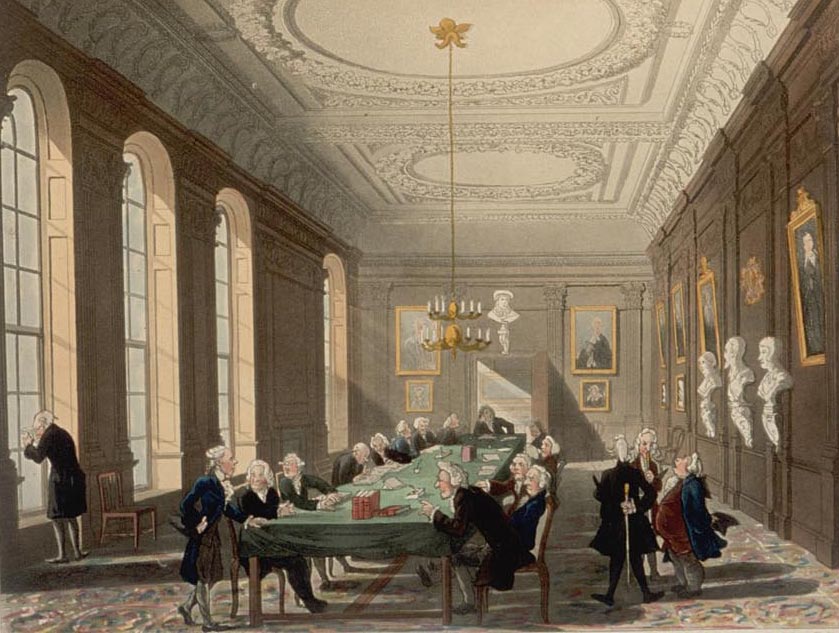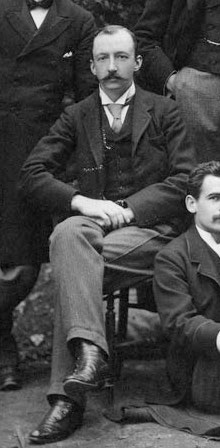|
James Hugh Thursfield
James Hugh Thursfield FRCP (July 1869 – 20 June 1944) was a British paediatrician. With Archibald Garrod and Frederick Batten he edited ''Diseases of Children'' (1913), and he edited ''Archives of Diseases in Childhood'' (founded 1926). He served as a major at the 14th General Hospital at Boulogne during the First World War World War I or the First World War (28 July 1914 – 11 November 1918), also known as the Great War, was a World war, global conflict between two coalitions: the Allies of World War I, Allies (or Entente) and the Central Powers. Fighting to .... References External links * 1869 births 1944 deaths 19th-century English medical doctors 20th-century English medical doctors British paediatricians Fellows of the Royal College of Physicians Royal Army Medical Corps officers British Army personnel of World War I {{UK-med-bio-stub ... [...More Info...] [...Related Items...] OR: [Wikipedia] [Google] [Baidu] |
Fellows Of The Royal College Of Physicians
The Royal College of Physicians of London, commonly referred to simply as the Royal College of Physicians (RCP), is a British professional membership body dedicated to improving the practice of medicine, chiefly through the accreditation of physicians by examination. Founded by royal charter from King Henry VIII in 1518, as the College of Physicians, the RCP is the oldest medical college in England. The RCP's home in Regent's Park is one of the few post-war buildings to be listed at Grade I. In 2016 it was announced that the RCP was to open new premises in Liverpool at The Spine, a new building in the Liverpool Knowledge Quarter. The Spine opened in May 2021. History The college was incorporated as "the President and College or Commonalty of the Faculty of Physic in London" when it received a royal charter in 1518, affirmed by Act of Parliament in 1523. It is not known when the name "Royal College of Physicians of London" was first assumed or granted. It came into use aft ... [...More Info...] [...Related Items...] OR: [Wikipedia] [Google] [Baidu] |
Archibald Garrod
Sir Archibald Edward Garrod (25 November 1857 – 28 March 1936) was an English physician who pioneered the field of inborn errors of metabolism. He also discovered alkaptonuria, understanding its inheritance. He served as Regius Professor of Medicine at the University of Oxford from 1920 to 1927.Rolleston, J. D. (2004"Garrod, Sir Archibald Edward (1857–1936)" rev. Alexander G. Bearn, in ''Oxford Dictionary of National Biography'', Oxford University Press. Education and personal life Archibald was the fourth son of Sir Alfred Baring Garrod, a renowned physician who received his medical degree at the age of 23 and became a professor of medicine at University College, London by the time he was 32. He discovered the abnormal uric acid metabolism associated with gout. Garrod's father also successfully estimated the weight of crystals he obtained from a known quantity of blood, resulting in what Garrod called “the first quantitative biochemical investigation made on the livi ... [...More Info...] [...Related Items...] OR: [Wikipedia] [Google] [Baidu] |
Frederick Batten
Frederick Eustace Batten (29 September 1865 – 27 July 1918) was an English neurologist and pediatrician who has been referred to as the "father of pediatric neurology". Biography Frederick Batten was born on 29 September 1865 in Plymouth. He attended Westminster School and Trinity College, Cambridge, and graduated in medicine in 1891 from St Bartholomew's Hospital Medical College in London. He worked as a pathologist at the Hospital for Sick Children and as a physician at the National Hospital. He obtained his doctorate in 1895, became a fellow of the Royal College of Physicians in 1901, and was elected dean in 1908. Batten disease was named after him after he first described it in 1903. Batten died from infection after a routine prostatectomy Prostatectomy (from the Ancient Greek language, Greek , "prostate" and , "excision") is the surgical removal of all or part of the prostate gland. This operation is done for benignity, benign conditions that cause urinary retention ... [...More Info...] [...Related Items...] OR: [Wikipedia] [Google] [Baidu] |
Diseases Of Children
A disease is a particular abnormal condition that adversely affects the structure or function of all or part of an organism and is not immediately due to any external injury. Diseases are often known to be medical conditions that are associated with specific signs and symptoms. A disease may be caused by external factors such as pathogens or by internal dysfunctions. For example, internal dysfunctions of the immune system can produce a variety of different diseases, including various forms of immunodeficiency, hypersensitivity, allergies, and autoimmune disorders. In humans, ''disease'' is often used more broadly to refer to any condition that causes pain, dysfunction, distress, social problems, or death to the person affected, or similar problems for those in contact with the person. In this broader sense, it sometimes includes injuries, disabilities, disorders, syndromes, infections, isolated symptoms, deviant behaviors, and atypical variations of structure and functio ... [...More Info...] [...Related Items...] OR: [Wikipedia] [Google] [Baidu] |
First World War
World War I or the First World War (28 July 1914 – 11 November 1918), also known as the Great War, was a World war, global conflict between two coalitions: the Allies of World War I, Allies (or Entente) and the Central Powers. Fighting took place mainly in European theatre of World War I, Europe and the Middle Eastern theatre of World War I, Middle East, as well as in parts of African theatre of World War I, Africa and the Asian and Pacific theatre of World War I, Asia-Pacific, and in Europe was characterised by trench warfare; the widespread use of Artillery of World War I, artillery, machine guns, and Chemical weapons in World War I, chemical weapons (gas); and the introductions of Tanks in World War I, tanks and Aviation in World War I, aircraft. World War I was one of the List of wars by death toll, deadliest conflicts in history, resulting in an estimated World War I casualties, 10 million military dead and more than 20 million wounded, plus some 10 million civilian de ... [...More Info...] [...Related Items...] OR: [Wikipedia] [Google] [Baidu] |
1869 Births
Events January * January 3 – Abdur Rahman Khan is defeated at Tinah Khan, and exiled from Afghanistan. * January 5 – Scotland's second oldest professional football team, Kilmarnock F.C., is founded. * January 20 – Elizabeth Cady Stanton is the first woman to testify before the United States Congress. * January 21 – The P.E.O. Sisterhood, a philanthropic educational organization for women, is founded at Iowa Wesleyan College in Mount Pleasant, Iowa. * January 27 – The Republic of Ezo is proclaimed on the northern Japanese island of Ezo (which will be renamed Hokkaidō on September 20) by remaining adherents to the Tokugawa shogunate. February * February 5 – Prospectors in Moliagul, Victoria, Australia, discover the largest alluvial gold nugget ever found, known as the " Welcome Stranger". * February 20 – Ranavalona II, the Merina Queen of Madagascar, is baptized. * February 25 – The Iron and Steel Institute is form ... [...More Info...] [...Related Items...] OR: [Wikipedia] [Google] [Baidu] |
1944 Deaths
Events Below, the events of World War II have the "WWII" prefix. January * January 2 – WWII: ** Free France, Free French General Jean de Lattre de Tassigny is appointed to command First Army (France), French Army B, part of the Sixth United States Army Group in North Africa. ** Landing at Saidor: 13,000 US and Australian troops land on Papua New Guinea in an attempt to cut off a Japanese retreat. * January 8 – WWII: Philippine Commonwealth troops enter the province of Ilocos Sur in northern Luzon and attack Japanese forces. * January 11 ** United States President Franklin D. Roosevelt proposes a Second Bill of Rights for social and economic security, in his State of the Union address. ** The Nazi German administration expands Kraków-Płaszów concentration camp into the larger standalone ''Konzentrationslager Plaszow bei Krakau'' in occupied Poland. * January 12 – WWII: Winston Churchill and Charles de Gaulle begin a 2-day conference in Marrakech. * Janua ... [...More Info...] [...Related Items...] OR: [Wikipedia] [Google] [Baidu] |
19th-century English Medical Doctors
The 19th century began on 1 January 1801 (represented by the Roman numerals MDCCCI), and ended on 31 December 1900 (MCM). It was the 9th century of the 2nd millennium. It was characterized by vast social upheaval. Slavery was abolished in much of Europe and the Americas. The First Industrial Revolution, though it began in the late 18th century, expanded beyond its British homeland for the first time during the 19th century, particularly remaking the economies and societies of the Low Countries, France, the Rhineland, Northern Italy, and the Northeastern United States. A few decades later, the Second Industrial Revolution led to ever more massive urbanization and much higher levels of productivity, profit, and prosperity, a pattern that continued into the 20th century. The Catholic Church, in response to the growing influence and power of modernism, secularism and materialism, formed the First Vatican Council in the late 19th century to deal with such problems and confirm ce ... [...More Info...] [...Related Items...] OR: [Wikipedia] [Google] [Baidu] |
British Paediatricians
British may refer to: Peoples, culture, and language * British people, nationals or natives of the United Kingdom, British Overseas Territories and Crown Dependencies. * British national identity, the characteristics of British people and culture * British English, the English language as spoken and written in United Kingdom of Great Britain and Northern Ireland and, more broadly, throughout the British Isles * Celtic Britons, an ancient ethno-linguistic group * Brittonic languages, a branch of the Insular Celtic language family (formerly called British) ** Common Brittonic, an ancient language Other uses *People or things associated with: ** Great Britain, an island ** British Isles, an island group ** United Kingdom, a sovereign state ** British Empire, a historical global colonial empire ** Kingdom of Great Britain (1707–1800) ** United Kingdom of Great Britain and Ireland (1801–1922) * British Raj, colonial India under the British Empire * British Hong Kong, colonial ... [...More Info...] [...Related Items...] OR: [Wikipedia] [Google] [Baidu] |
Royal Army Medical Corps Officers
Royal may refer to: People * Royal (name), a list of people with either the surname or given name * A member of a royal family or royalty Places United States * Royal, Arkansas, an unincorporated community * Royal, Illinois, a village * Royal, Iowa, a city * Royal, Missouri, an unincorporated community * Royal, Nebraska, a village * Royal, Franklin County, North Carolina, an unincorporated area * Royal, Utah, a ghost town * Royal, West Virginia, an unincorporated community * Royal Gorge, on the Arkansas River in Colorado * Royal Township (other) Elsewhere * Mount Royal, a hill in Montreal, Canada * Royal Canal, Dublin, Ireland * Royal National Park, New South Wales, Australia Arts, entertainment, and media * ''Royal'' (Jesse Royal album), 2021 * Royal (Ayo album), 2020 * ''The Royal'', a British medical drama television series * '' The Royal Magazine'', a monthly British literary magazine published between 1898 and 1939 * '' The Raja Saab'', working title ''Royal' ... [...More Info...] [...Related Items...] OR: [Wikipedia] [Google] [Baidu] |





